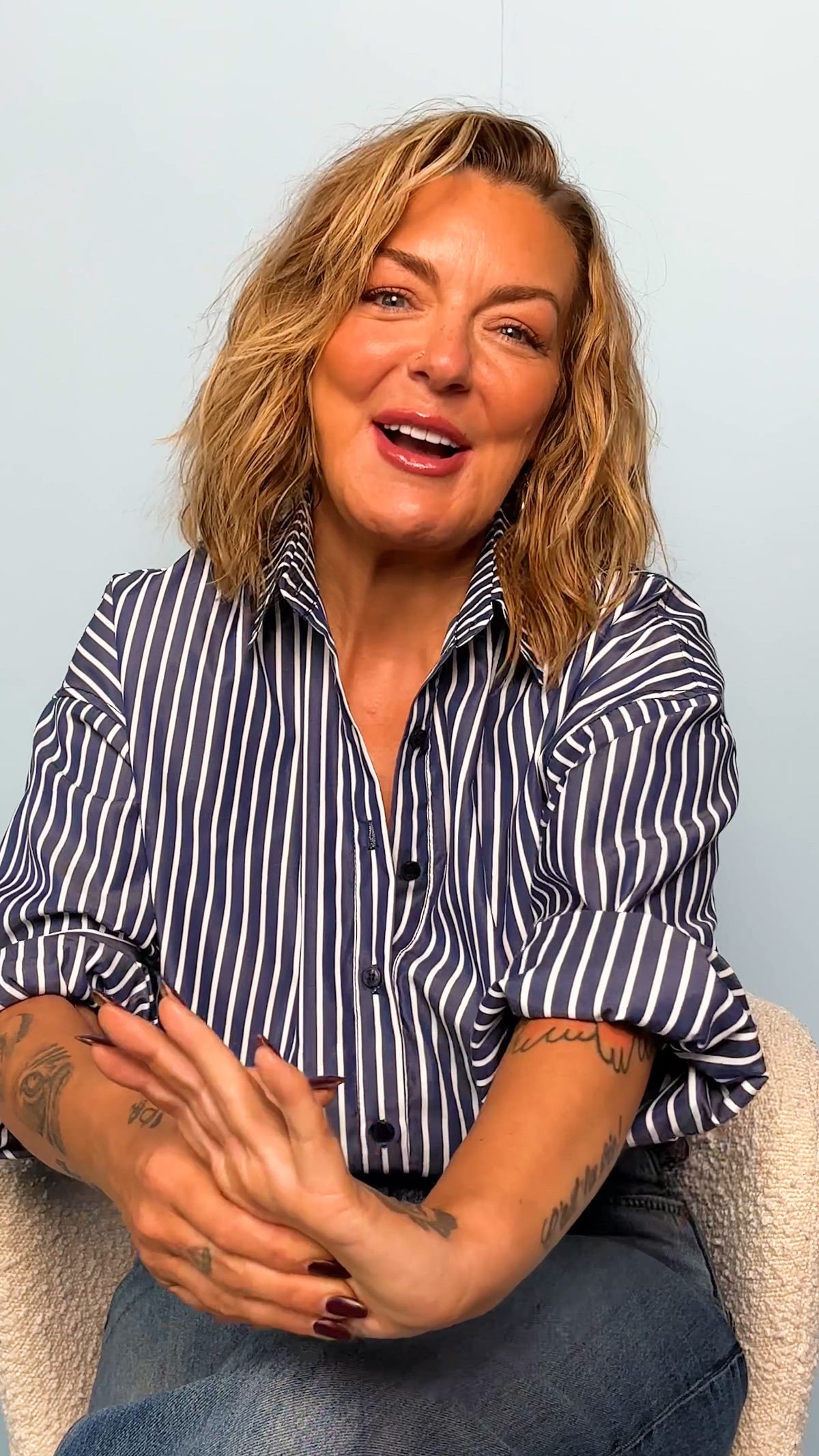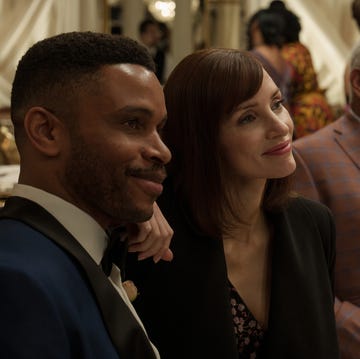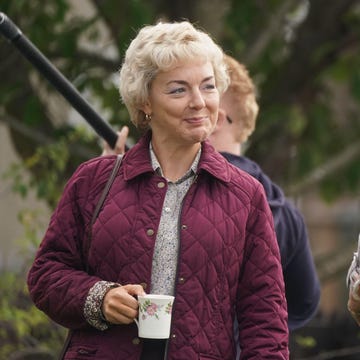Among the many reasons I hoped I’d never get divorced was the thought of how sad it would be to divide up all the belongings shared with someone I’d promised to cherish for ever. I’d watched so many films and sitcoms in which separating couples who’d once adored each other waged petty battles over furniture or CD collections (we’re talking life pre-Spotify). It gave me a cold and lonely feeling even to think about it.
The divorce scene most seared into my memory was from When Harry Met Sally. Harry and Sally’s friends Jess and Marie are getting married and debating whether to keep or get rid of various things in their new shared home. Harry, angry and hurt about his own divorce, picks up a turquoise plate from one of the moving boxes. He warns Jess and Marie that, as loving as they feel right now, the time will come when they’ll run up a thousand dollars in legal fees to the firm of ‘That’s Mine, This Is Yours’, all for the sake of this one ‘eight-dollar dish’.
As so often in life, I had dreaded the wrong thing. When my husband of more than 20 years left me quite suddenly, he hardly took any stuff with him, except his clothes and a few books and pictures. He staked no claim to a single dish or pan in the kitchen we had shared for so long. He left it all behind, just as he had left me. I’m aware this makes me insanely lucky and unusual, as separating goes.
One in four women struggle financially after divorce, and almost every divorcé(e) is forced to part with a whole host of things they wish they could have kept, from seemingly insignificant possessions to whole houses. Some of my divorced friends still regret the sorrowful gaps in their cookbook collections and utensildrawers. Yet my ex-husband’s lack of desire for the contents of our house (my lawyer called them our ‘chattels’) felt quietly devastating in its own way.
Weddings are celebrated with gifts, but divorces are more about shedding stuff. My separation was a forceful reminder that we all have to decide what to hold on to and what to let go of as we pass through life. When your soulmate leaves, you have to choose which are the possessions that will give you a sense of continuity as you adjust to your new uncoupled life, and which are the ones to cast off because the associations are too painful. I was glad I still had a couple of my mother’s wooden spoons to keep me company (my husband leaving coincided with her moving to a care home). But there were countless other things in the house that screamed too loudly that he had gone. One day, when he came to collect our youngest son, I handed him back the mugs with his initials on that used to hang on our dresser, along with some weird paintings belonging to his family, which had been displayed in our TV room. I felt as if I’d performed a small exorcism.
In my heartbroken mind, I was now a sad, rejected person surrounded by sad, rejected things. One day, a couple of months after he left, a slightly rusty heart-shaped cake tin dramatically fell at my feet from a shelf. It felt like a sign.
This wasn’t just any cake pan; it was the tin in which I’d baked my own wedding cake – a rich fruitcake – all those years ago. For more than two decades, the sight of this tin had given me a warm glow as a memento of our wedding day, yet now I could hardly look at it. But how can you possibly discard such a thing?
As the weeks went by, I imagined I was surrounded by ghosts in the form of household objects. I was still waking up in my ‘marital bed’, and it spooked me to touch the pillows on ‘his’ side of the bed. I dressed from a wardrobe stuffed with dozens of his empty coat hangers and masses of old shirts he didn’t want any more.
Alone in my kitchen, I found myself feeling apprehensive about many of the things I’d once loved. I felt his presence most strongly at the kitchen table, as if his hands were permanently etched on to the wood at the corner, where he always sat. But a kitchen table is too big and expensive to discard on a whim, so I decided to make my peace with it. I scrubbed the surface with wire wool and my 17-year-old daughter generously moved to sit in his place.
As the months went by, I started to see that even though I hadn’t chosen it, my divorce was a chance to look at the things in my life afresh. Every time I tidied a cupboard and got rid of clutter – whether to a charity shop or my local recycling centre – it lifted my mood… although I also had twinges of guilt about all the wasteful things we had jointly accumulated and which were now defunct, from torn old curtains to broken toasters.
The best thing was having the chance to think about what I actually liked, distinct from my ex-husband’s taste. The week he got remarried, I painted my bedroom olive green, instead of the nondescript beigey-white he’d always favoured. It felt like waking up in a new room, one that was fully mine.
Living with less stuff was one of the unexpected upsides of divorce. Another was the realisation that the things we own can actually change their meaning when life moves on. Three and a half years after he left, I was finally brave enough to scrub off the rust and use the heart-shaped tin again. For my 50th, I baked Nigella’s Buttermilk Birthday Cake, which I’d made for so many of my children’s parties, and smothered it in a rich chocolate ganache. All three of my children were home, which was a rare joy now that two of them are grown-up. They devoured the cake.
The tin wasn’t the shiny, romantic thing it had once been. Now it could have a different kind of life, and maybe I could, too.
The Heart-Shaped Tin: Love, Loss And Kitchen Objects (Fourth Estate) by Bee Wilson is out 8 May














![©ITV from monumental television frauds sr1pictured: jodie whittaker as sam suranne jones as bert this photograph is (c) itv plc/ monumental television and can only be reproduced for editorial purposes directly in connection with the programme or event mentioned above, or itv plc. this photograph must not be manipulated [excluding basic cropping] in a manner which alters the visual appearance of the person photographed deemed detrimental or inappropriate by itv plc picture desk. this photograph must not be syndicated to any other company, publication or website, or permanently archived, without the express written permission of itv picture desk. full terms and conditions are available on the website www.itv.com/presscentre/itvpictures/termsfor further information please contact:michael.taiwo1@itv.com](https://hips.hearstapps.com/hmg-prod/images/frauds-sr1-first-look-03-6891d81c2d536.jpg?crop=0.428xw:0.643xh;0.0641xw,0.116xh&resize=360:*)